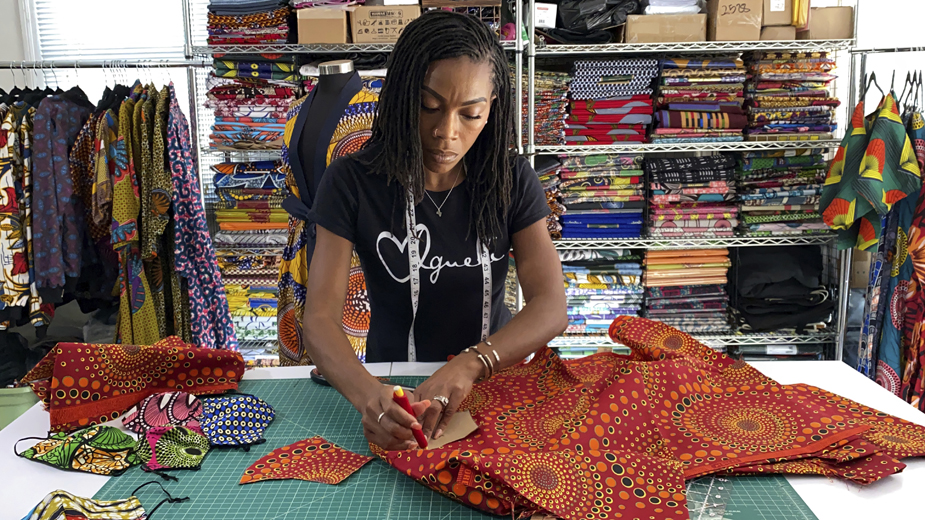Fed Report: Minority-Owned Businesses Hurt More by Pandemic
CLEVELAND, Ohio – A new report by the Federal Reserve Bank of Cleveland shows that minority-owned businesses have been disproportionately hurt by the COVID-19 pandemic and that their access to relief such as loans from the Paycheck Protection Program is less than their White counterparts.
Citing a paper by the National Bureau of Economic Research, the report says the number of active self-employed Black business owners decreased by 41% between February and April, while their Latino and Asian counterparts saw drops of 32% and 26%, respectively. White self-employed workers saw a 17% drop in activity.
Meanwhile, Black-owned businesses are seeing their cash reserves down by 26% from last year. Similarly, Asian-owned businesses saw cash reserves fall 20%. The median decline for all small businesses was 5%.
“Prior to March, there was reason to suspect that minority-owned firms might be ill-equipped to survive a severe economic downturn. … The Federal Reserve Bank of Atlanta’s ‘Small Business Credit Survey 2019 Report on Minority-Owned Firms’ indicated that, on average, minority-owned small businesses had lower revenues than nonminority-owned firms,” the Cleveland Fed’s report said. “For Black-owned firms, the disparity is largest. Nearly half (45%) of Black-owned firms reported earning $100,000 or less annually. In contrast, only 18% of White-owned firms reported yearly revenues of less than $100,000.”
The Cleveland Fed’s report also highlights how the hardships faced by minority-owned business could affect the economy as a whole. Three of the largest sectors with high minority representation reported that they expected to survive more than six months with continued disruptions caused by the pandemic.
Just under a quarter (23%) of tourism and lodging businesses said they could survive six months, while restaurants and bars saw 19% and 37% of health-care businesses responded the same.
The story is quite different in sectors with low minority representation; 62% of banks say they will survive another six months, along with 59% of real estate businesses and 56% of professional service companies.
“The findings are further supported by data from the US Census Bureau’s Small Business Pulse Survey, which suggests that early concerns among industries with the highest concentration of minority-owned firms have materialized in the form of significant financial strain,” the report says. “On average, these industries have been more likely than the national average to report a large negative effect from the pandemic as well as missed payments on loans and operational expenses such as rent and payroll. The financial impact reported by these firms raises concerns surrounding their ability to weather sustained effects from the crisis.”
Though it was created to provide relief for small businesses, the Paycheck Protection Program has largely not met the needs of minority-owned businesses. The problem begins with the communities’ use of traditional banking institutions. In the 2016 Small Business Credit Survey, the Federal Reserve found that Black-owned businesses are half as likely as White-owned companies to have borrowed from a bank in the past five years.
They’re more likely, however, to borrow from credit unions, community development financial institutions and nonbank online lenders. And through the end of May, those kinds of institutions accounted for just 4% of PPP loans.
“Though the federal government took steps in the second round of PPP funding to increase access through less traditional credit channels, issues surrounding access to the program early on may have left some minority-owned firms in a disadvantaged position during the critical early days of the crisis,” the Cleveland Fed report says.
Access to bank branches was also a key part of the awarding of PPP loans. North Dakota, for example, has the country’s second-highest ratio of bank branches to small businesses and, through May 30, had the highest rate of approvals for PPP loans. Meanwhile, states with high levels of minority-owned businesses such as California or New York, rank far lower on the branch-to-business ratio chart.
“A combination of several factors may offer an explanation for why the COVID-19 pandemic has impacted minority-owned firms with greater severity than nonminority-owned firms and could continue to do so as concerns around the virus persist,” the report says. “While 2019 Small Business Credit Survey data show minority-owned firms may have been less prepared to weather an economic downturn prior to the pandemic, the concentration of minority-owned firms in industries most impacted by shutdowns and complications surrounding the PPP rollout likely exacerbated issues for those businesses.”
If minority-owned businesses don’t survive through the pandemic, the loss could have wide reverberations through the greater economy, the report continues. Between 2014 and 2016, the number of minority-owned businesses opening increased 11%, compared to just 1% for nonminority companies.
Overall, such businesses employ some 9 million people and serve as a wealth vehicle, helping to close the household wealth gap, which has left Black homes with one-tenth the wealth of median White homes.
In addition, research from the Kauffman Foundation highlights that startup funding is more difficult to obtain for minority-owned firms, with more than 70% of new Black-, Hispanic- and Asian-owned companies relying on personal funds and family savings to start businesses. Their White counterparts, however, are the most likely of any race to pursue a bank loan to start their business.
“The COVID-19 pandemic continues to underscore the importance of detailed data in helping policymakers reach timely decisions in support of minority-owned businesses,” the report concludes. “Existing data on small businesses offer insights on key differences between minority- and nonminority-owned firms in areas such as business performance and credit access, revealing disparities that suggest that minority-owned firms are less financially secure and more exposed to the effects of an economic downturn than nonminority-owned firms.”
The full report can be read HERE.
Pictured: Iguehi James, an Oakland, Calif., fashion entrepreneur, cuts fabric to make a face mask she sells through her apparel company Love Iguehi. (AP Photo/Terry Chea)
Copyright 2024 The Business Journal, Youngstown, Ohio.



